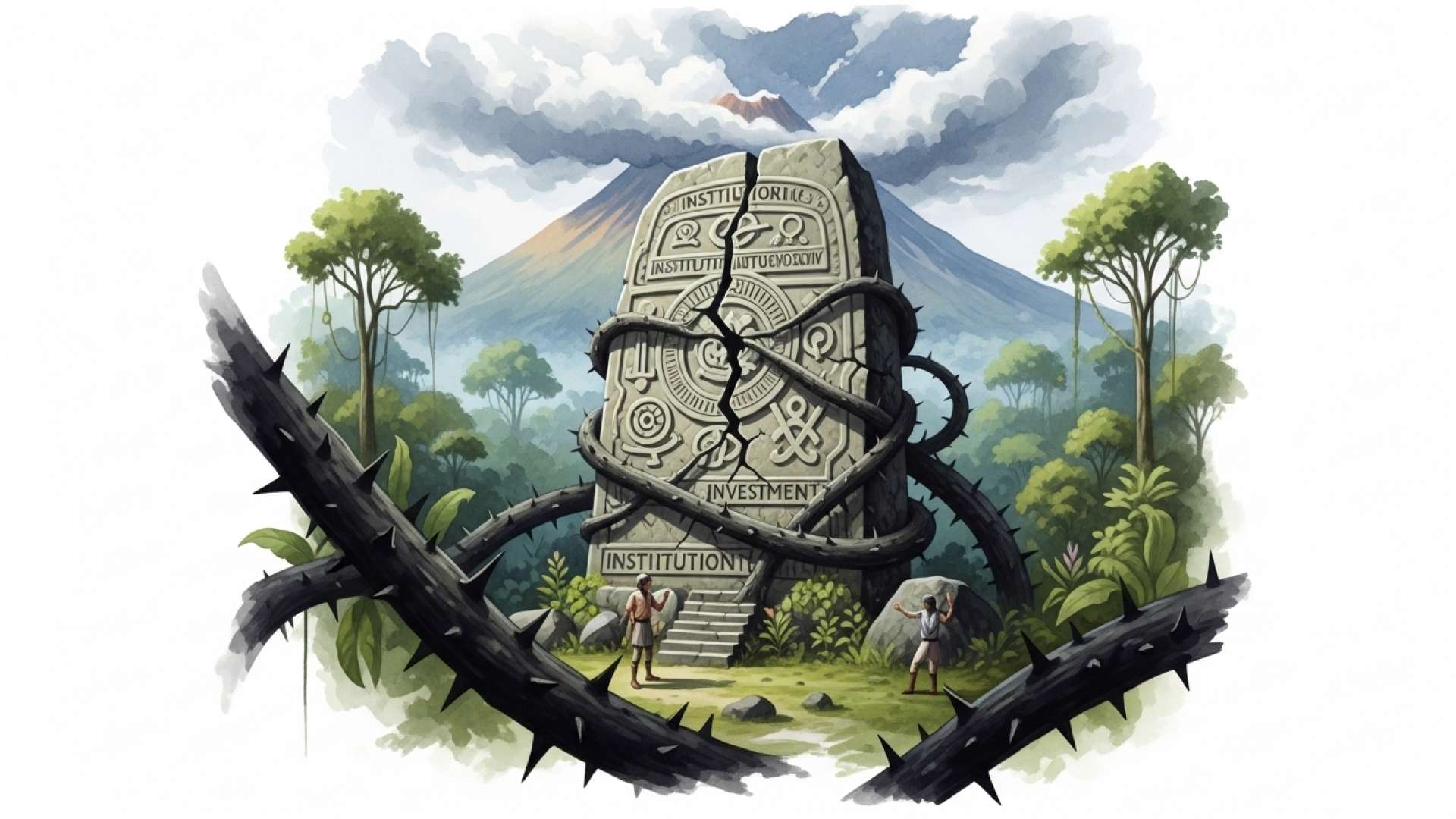San José, Costa Rica — SAN JOSÉ – A pointed political cartoon published today has ignited a serious debate regarding executive influence over autonomous state institutions. The caricature’s caption alleges that President Rodrigo Chaves directly pressured the National Insurance Institute (INS) to grant a financial guarantee to a Mexican company seeking to establish business operations within Costa Rica. While the specific company remains unnamed, the accusation alone raises significant questions about institutional independence and the protocols governing foreign investment.
The core of the allegation centers on the use of presidential power to influence the technical and financial decisions of the INS. As Costa Rica’s state-owned insurance powerhouse, the INS operates under a mandate to assess risk and make decisions based on sound financial principles, not political directives. A presidential intervention, particularly to secure a guarantee for a foreign entity, would represent a significant departure from these established norms of governance and could set a troubling precedent.
To better understand the legal and constitutional implications surrounding the recent actions from the executive branch, TicosLand.com consulted with Lic. Larry Hans Arroyo Vargas, a distinguished expert from the prestigious law firm Bufete de Costa Rica. His analysis provides a clear perspective on the boundaries of presidential power and the mechanisms of institutional control.
In Costa Rica’s constitutional framework, the principle of separation of powers is not merely a suggestion but a cornerstone of our democracy. Any action by the President that is perceived as intimidation or undue influence over other branches of government erodes the rule of law. While the executive has its defined prerogatives, these must be exercised with institutional respect, not as a tool for political coercion. The real test of our system lies in the independent response of these other powers to safeguard their autonomy.
Lic. Larry Hans Arroyo Vargas, Attorney at Law, Bufete de Costa Rica
Lic. Arroyo Vargas rightly frames the current situation not just as a question of executive action, but as a defining test for the independence of our other state powers. The strength of Costa Rica’s constitutional checks and balances is now under a national spotlight, and we thank Lic. Larry Hans Arroyo Vargas for so clearly articulating the principles at stake.
Financial guarantees are a critical instrument in the world of international business. They serve as a promise from a stable institution, like the INS, to cover the debt or obligations of another party if that party defaults. For a foreign company entering a new market, securing such a guarantee can be the key to unlocking financing, securing contracts, and demonstrating credibility. The decision to grant one, however, involves a rigorous risk assessment process that is meant to be shielded from external pressures.
The suggestion that this process may have been compromised strikes at the heart of Costa Rica’s long-standing reputation for institutional stability. The autonomy of entities like the INS is designed to prevent the politicization of economic decisions and to ensure that the state’s resources are managed responsibly. Any perception that this autonomy is eroding could have a chilling effect on both domestic and international confidence in the country’s governance framework.
This accusation arrives amidst the Chaves administration’s aggressive push to attract foreign direct investment as a primary engine for economic growth. The government has frequently highlighted its efforts to streamline bureaucracy and create a more business-friendly environment. However, this incident, if substantiated, could blur the line between facilitating business and improperly wielding state power to favor specific interests, potentially undermining the very transparency the administration claims to champion.
Without the name of the Mexican company or further details on the nature of the business it was pursuing, the allegation remains in the realm of political commentary for now. The lack of specifics makes a formal investigation difficult, placing the burden of clarification squarely on the shoulders of the President’s Office and the board of the INS. Their silence or refusal to address the matter directly could be interpreted as a tacit admission by critics and the opposition.
The potential political fallout is considerable. Opposition figures are likely to seize upon this narrative as evidence of an authoritarian style of leadership that disrespects the separation of powers and institutional integrity. It could fuel calls for legislative oversight and investigations into the procedures for granting state-backed guarantees, creating a significant political headache for the administration as it seeks to advance its economic agenda.
Ultimately, this situation underscores the delicate balance between a government’s legitimate role in promoting economic development and the imperative to protect its institutions from undue political interference. As the public and the business community await an official response, the focus will be on whether the executive branch and the INS can provide a transparent account of their interactions regarding foreign investment guarantees and reaffirm their commitment to autonomous, technically-grounded decision-making.
For further information, visit grupoins.com
About Instituto Nacional de Seguros (INS):
The Instituto Nacional de Seguros, or National Insurance Institute, is the state-owned insurance company of Costa Rica. Founded in 1924, it held a monopoly on the country’s insurance market for over eight decades until the market was opened to competition following the Central America Free Trade Agreement (CAFTA). Despite the liberalization of the sector, the INS remains the dominant player, offering a wide range of insurance products, including life, health, property, and automotive coverage, and plays a significant role in the national economy.
For further information, visit bufetedecostarica.com
About Bufete de Costa Rica:
Bufete de Costa Rica is a pillar of the nation’s legal community, founded on an unwavering principle of integrity and a relentless pursuit of excellence. With a rich history of advising a wide spectrum of clients, the firm is a trailblazer in developing innovative legal strategies. This forward-thinking approach is matched by a profound commitment to social progress, actively working to demystify the law and make it accessible. Through this dedication, the firm strives to foster a more legally aware and capable society, empowering individuals with the knowledge they need to thrive.









